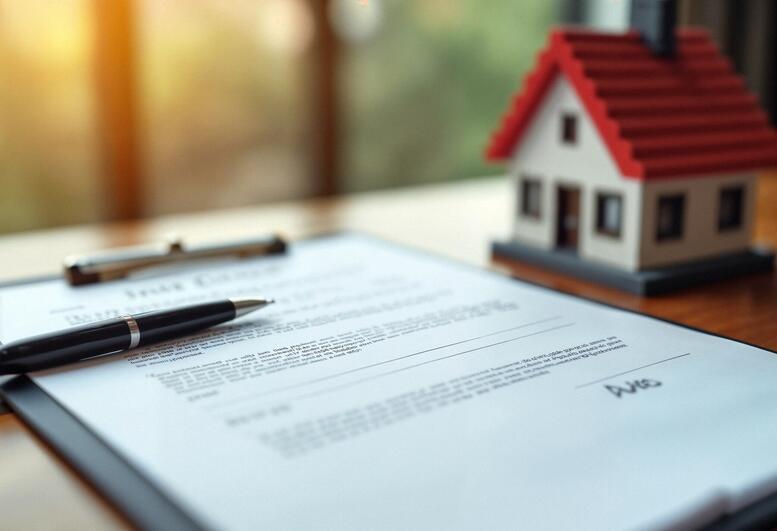Real Estate
Mortgage crises drive house prices down by 20%. End of Tenancy Cleaners will be the winners

If you still think that 2020 was the worst year ever, you’ve obviously slept through 2022 so far. With energy prices soaring and war-induced 40-year-high inflation, there isn’t an industry that was not hit hard by the post-covid crisis. This was not a genuine surprise, as experts had predicted high inflation and market shrinkage a year ago. However, what they couldn’t take into consideration was Putin’s imperialistic obsessions, which spiked the crises out of control and produced what we see today.
Still, a genuine surprise was the ever-climbing housing market. For seven months straight, housing prices have been going up and the market scaled by 15.5% annually by the end of July.
However, over August and September, the housing market didn’t just slow down but began shrinking. Moreover, with October passing its midpoint, the housing market decline seems to be speeding up.
Why didn’t the housing market continue to rise
There were several factors which led to the rapid rise of the housing market, despite the inflation and volatile industry. The first of many was the Covid crisis, which deterred people from spending too much. Naturally, they managed to accumulate significant capital. In addition, the high inflation introduced another factor, as it pushed those who managed to save money, to invest further and not lose them to inflation. Moreover, the pandemic made it painfully obvious what are the benefits of owning your own place, especially one outside the big urban centres. The final nail in the coffin was the relentlessly rising rent cost, which, unlike wages, rapidly increased. By June 2022, the average rental price in the UK increased up to 3.6% for a 12-month period.
All these factors pushed people to seek housing opportunities despite the expectations that the Bank of England would raise the interest rates. After all, many concluded that if they would pay massive sums each month, it’s better to make it toward their own home rather than just pay a landlord.
On the other hand, many who were saving for a second or third home were forced to choose whether to let inflation take a huge bite out of their savings or invest it in a bigger, better and newer home.
All of this drove the housing market up, but as we are preparing for the next increase in interest rates, it seems that the housing market will finally take a blow.
Why is a mortgage crisis expected?
The Bank of England announced yet another aggressive interest rate increase in November to battle the ever-increasing inflation. This might bring some peace of mind in other markets, but the increase will actually make things worse when it comes to the housing market. Private banks in terms will increase their interest rates towards their customers, so people will have to pay higher amounts to cover their mortgages. For example, the interest on two-year fixed-rate mortgages has more than doubled, rising to 5.17% compared to 2,57% in March 2021. The five-year fixed-rate mortgage has done the same, reaching 5.1% compared to 2.75% in March 2021.
This means that many won’t be able to cover their loans, as some estimates claim that millions would not be able to afford to deposit their monthly payments. On average, a person who took a £100,000 25-year mortgage at a rate of 2% pays £424 monthly. However, if the interest rate goes to 6%, as is the BoE plan for next year, this would mean that the monthly payment will rise to £644. Many won’t be able to afford this drastic change. Thus it will lead to a mortgage crisis.
From the mortgage crisis to the housing market collapse.
Since many won’t be able to afford their monthly payments, they will be forced to sell their homes. Moreover, many would try to sell their homes in panic, as they will be afraid of even higher increases next year. The significant drop in mortgage applications and the fact many landers suspended most of their mortgage products means the housing market is not just in crisis but should be ready for a free fall. High offering and low demand are usually a recipe for disaster in any market. Experts expect the real estate cost to drop as much as 20%.
According to UK’s National Statistics, the average house price in the UK was £292,118 in July 2022. If the experts’ predictions come true, soon a new home in the UK could be bought for as little as 233.7 thousand (on average)
Is there a silver lining?
It’s hard to imagine there will be any winners in this horrific scenario which is currently unfolding. However, if we have to find a bright side to this, there will be some industries that will probably benefit from the housing market’s downfall. For example, people who already have the money or can afford the constantly increasing mortgage prices will have the opportunity to get a new home with a 20% discount. Landlords will also take a significant boost from the collapsing market, as many would have to go back to renting. With the skyrocketing rental prices, this turn of events is more than welcome for many rental apartment owners.
However, the biggest winners will be the service sector, which takes care of preparing homes for sales and new residents.
End-of-tenancy cleaners will enjoy a busy winter.
EoT is an essential service when you want to let your home look stunning before selling it or whenever you are switching your permanent residence. Although the money will be tight in most cases, many would prefer to hire a professional team to prepare their homes for sale, as it will drive the price up. Moreover, an end-of-tenancy cleaning is a one-time spend that significantly increases the property’s value. For example, the price range for one of the most prominent end of tenancy cleaning companies in the UK, Fantastic Cleaners, shows that the average price for a single-bed home goes from £180 to £210, depending on the area. This is a small price that can easily increase the value of your home by up to several thousand pounds.
Moreover, storage providers, staging companies and others will also experience a boom, especially with fewer potential clients on the line. The significant reduction in demand will force sellers to upstage their competition in order to sell without drastically lowering their prices, so any trick in the book will come in handy.
There is a hard winter coming
Despite the opportunity for some home services sectors, the mortgage crisis portend one truly harsh winter. High inflation and the inability to strike good mortgage deals will force people to seek other ways to save their money, which may lead to funds draining away from the UK economy. So how will our lawmakers deal with this impending crisis? We will have to wait and see.
Real Estate
Settling an Estate? Here’s How the Right Appraisal Can Streamline Probate


Settling an estate is perhaps one of the most difficult legal battles you are bound to deal with at some point in time or another. In case of unexpected situations, you find yourself charting an unfamiliar legal terrain where you have to make difficult decisions to ensure that you don’t fall under the legal knife. The defining element of settling an estate is the process of probate. It is a legal process that validates a deceased person’s will and ensures it is properly administered to distribute assets to beneficiaries, according to the deceased’s wishes. While the process of probate is long and tiring, one aspect that can help you smoothly come out of this process is a professional and court-compliant estate appraisal. It ensures that the real and accurate value of the estate in question is evaluated, which leads to the prevention of inaccurate tax filings or disputes among heirs.
A common misconception you may harbor is that you must be physically present for an estate appraisal. However, online appraisal is equally as efficient and ensures that you are getting the best services digitally. With professional appraisers, you can be assured of the fact that the estate is inspected extensively and sophisticated analytical techniques are used to find the accurate value. A complex process such as a probate demands paperwork explaining values down to each detail, and it is only through professional appraisers that you can provide a USPAP-compliant appraisal. The right appraisal can give you clarity when it is required the most and protect your estate from unnecessary delays, taxes, or liabilities. It can give your probate process a much-needed structure and objectivity, often absent in traditional probate processes.
In this article, we will understand how you can take help from an estate appraisal to streamline the process of selling an estate can immensely ease the process. You will realize that it is not just an option but rather a necessity that can offer you peace of mind and minimize legal as well as financial risk.
Simplify Probate and Protect the Estate with a Professional Appraisal


- Establishes Accurate Date-of-Death and Fair Market Value
When selling an estate, the IRS requires an accurate date of death and fair market value, which is essential in cases subject to federal estate taxes and also for estates that require equitable distribution or formal probate administration. A New York appraiser can help you prevent inaccurate values, IRS audits or penalties, delays in court approval of the inventory, rejection of tax filings due to non-compliance, and challenges by other heirs, beneficiaries, or creditors.
- Minimizes Family Disputes by Providing Objective, Third-Party Valuation
A professional appraisal ensures that a neutral and verifiable market-based value is provided that is free from emotional bias, transparency in asset allocation, especially when one heir wishes to buy out others, consistency with legal guidelines, and reduced exposure to claims of favoritism. It also provides a common basis for negotiation, which is vital, especially in blended families and complex estates. These appraisals create a solid foundation for mathematically equitable distribution and remove the possibility of subjective interpretations.
- Enables Strategic, Timely Decisions on Sale, Retention, or Transfer of Real Estate
With an accurate and detailed appraisal, you can gain confidence to list your property at the right price if you’re planning to sell. It can also provide clarity on whether it makes financial sense to retain or rent the property, insight into potential tax outcomes if the asset is liquidated, and legal documentation that supports fiduciary responsibility. You can unlock strategic and timely decisions on the sale of your estate and make decisions grounded in data, not assumptions.
- Supports Stepped-Up Basis Calculations and Protects Heirs From Future Tax Burdens
An estate appraisal can help establish the new cost basis. In the absence of an appraisal, the IRS may challenge the declared basis and trigger a much higher tax bill. The heir may also lack legal support if audited years later, and tax preparers won’t have a defensible figure to report gains or depreciation. With a USPAP-compliant appraisal, you ensure that precise property valuations are provided in legal proceedings.
- Adds Credibility and Efficiency to Legal and Probate Proceedings
An accurate appraisal from a professional appraiser can be formatted to match court inventory requirements, include zoning data, market trends, and comparable sales analysis, be signed and dated with supporting documentation that can be submitted with probate filings, and provide affidavits or testimony if required during contested proceedings. With audit-ready and court-compliant documents, you can save time and avoid delays.
End Note
With the right appraisal, you can streamline probate with confidence. It establishes an accurate date of death and fair market value, minimizes family disputes by providing objective and third-party valuation, enables strategic and timely decisions on sale, protects heirs from future tax burdens, and adds credibility or efficiency to legal and probate proceedings.
Read More: jacqulyn elizabeth hanley
Real Estate
3 Essential Tips for Choosing the Right Property Developer


A home is what most people purchase once in a lifetime. Having the ideal property that meets all your requirements and aligns with your vision is complex. Imagine a visionary mind who brings dreams to life, building communities and crafting spaces where memories are made. A property developer is what you call them.
They use their expertise to shape the landscape, create sustainable homes, and design environments loved by families, individuals, and communities. With their attention to detail and passion for architecture, property developer constantly explores ways to make a positive impact. What’s more, even make spaces with amenities promoting well-being, connectivity, and happiness.
In that sense, a property developer has a deep passion for transforming spaces into places and understanding your needs and desires, which will eventually call their developments “home.”
Hunt: Fundamental Steps
Before investing in a property development project, conducting thorough due diligence on the property developer is important. These steps can provide valuable information and help you decide about your property investment.
1. Website Browsing
Feel free to explore the developer’s website for a comprehensive insight into the company’s profile. By browsing the website, you can access valuable information about the company’s history, ownership, partners, operational timeline, and projects.
An overview of the company’s history, including its establishment, milestones, and achievements, may also be provided. This can help you know their experience and track record in the industry, presenting you with a sense of their credibility and reliability.
It’s also worth checking out the projects they’ve successfully delivered in the past and whether they met their promised deadlines. Searching for ongoing projects to see if they stay on track with their timelines is also helpful.
2. Review Completed Projects
When it comes to the world of real estate, there’s a saying that goes, “Seeing is believing.” To truly grasp the essence of a property, it’s important to go beyond the glossy brochures and virtual tours and visit the completed projects of the developers.
When evaluating a potential property development investment, visiting completed projects is crucial in your due diligence process. It allows you to see the actual result of the developer’s work, and it’s a chance to assess whether the property meets your expectations and standards.
One of the benefits of visiting completed projects is that you can see how the property has aged over time. Observe how well the developer has maintained the building, how the finishes have held up, and whether there are any signs of wear and tear. In addition, this also allows you to interact with existing residents or tenants, if possible.
3. Small Talk with Existing Owners
Chatting with a current property owner can quickly give you valuable insights about the developer. Ask them about their experiences on the property, satisfaction with the services, and any issues they may have encountered.
They can provide unbiased information about the pros and cons of working with the developer, the properties they offer, and how they operate. Ask about service standards, reliability, and other hidden aspects of property investment.
Verifying whether the layouts, finishes and build quality match what was presented in the marketing materials or sales pitch can also be done. This will help you avoid potential misrepresentations or discrepancies and make an informed decision based on real, tangible evidence.
Property Developer Checklist
Home purchasing demands careful consideration and thorough research to guarantee you make the right decision. One of the factors in making the right choice is determining a reputable developer.
They are responsible for the location, construction quality, pricing, and overall project value. This is why choosing a trustworthy developer and considering their background is very important. Here are a few things to keep on your checklist:
1. Their Background
Checking the developer’s background is crucial. Knowing about their history in the industry and the number of projects they finished, you can better understand their reputation and performance.
Real estate is a fiercely competitive industry, with developers aiming to meet client requirements through customized projects. The ability to adapt to changing market preferences plays a huge role in the success and survival of the industry. Their longevity in this field can speak volumes about their credibility.
2. Local Reputation and Track Record
Once you’ve grasped the available developers’ corporate profiles, look for the one with a solid reputation and a proven track record of successful projects. Glancing at their company’s record can give you the most accurate picture. Browse their company forums, news reports, press releases, and property sites for a comprehensive view.
It’s also good to check if the developer is a member or affiliated with industry associations or self-regulatory bodies. This shows their commitment to professionalism to industry standards. It’s like ensuring they’re part of a reliable community promoting good construction industry practices.
Read reviews, testimonials, and references from previous clients to determine their reliability, quality of work, and understanding of the local property market. Also, a thoughtful developer completes the project on time with strong commitment and unwavering dedication.
3. Quality
By physically walking through the completed projects, you can better understand the flow of the space, the quality of materials used, and the attention to detail. This can provide valuable wisdom into the developer’s commitment to quality and attention to maintenance and upkeep. It can be crucial in determining the property’s long-term value and potential return on investment.
Once you have confidence in the property developer’s reputation and track record for delivering projects on time, assessing the quality of their construction work is important. This includes evaluating the materials, craftsmanship, and attention to detail to ensure the property is built to a high standard.
Final Thoughts
Investing in property development can be a smart financial decision with numerous benefits. To name a few, these are wealth creation, economic growth, housing solutions, job creation, and community revitalization.
Choosing the right property developer is the reason behind the success of a property development project. Working with the right developer ensures the project is completed on time, within budget, and to the desired quality standards, minimizing risks and maximizing returns on investment.
References:
https://www.swagatgroup.in/blog/how-to-choose-the-right-real-estate-developer/
https://www.linkedin.com/pulse/5-tips-choose-right-property-developer-vascon-engineers/
https://micaraland.com/real-estate-ofws/news/finding-the-right-property-developer/
https://massrealestatenews.com/choosing-right-real-estate-developer/
https://www.camella.com.ph/things-to-check-in-a-real-estate-developer-before-buying-a-property/
https://muppaprojects.com/7-tips-to-choose-the-right-property-developer/
Real Estate
5 Budgeting Tips For Your Home Maintenance Needs


A home’s systems and appliances play a critical role in daily life, so it’s important to make sure they are performing as needed. Keeping track of the system’s age and any past repairs can help you anticipate future costs.
Experts recommend saving at least 1% of your home’s value per year to prepare for maintenance costs. However, this can vary depending on your home’s exact location. Better options include home warranty policies that can save a lot of money on costly repairs.
- Set a Goal
Keeping up with regular maintenance can lessen the need for costly repairs in the future. However, emergencies will inevitably arise and it’s important to prepare for them.
Many experts recommend saving 1 to 2% of your home’s value each year to cover unexpected expenses like a new roof or appliances. But, this number might not work for every budget.
A better option is to save a set amount each month for your home maintenance needs. This can help you avoid dipping into emergency savings and minimize your chance of going into debt to pay for unexpected repair costs. When setting up your budget, remember why you started and keep your goals in sight. This will help you stay motivated even on those days you don’t feel like budgeting.
- Set a Time Frame
Performing regular maintenance helps to keep everything in good working order. Even small fixes like caulking the tub and cleaning out the gutters can help prevent serious problems down the line.
Make a list of all the tasks that need to be completed and determine how often they should be done. It’s important to create a schedule that accounts for both the indoor and outdoor maintenance needs of your property.
Set reminders and use a calendar or list app to help you stay on track. If you prefer paper, try a notebook with dedicated spaces for each task.
- Make a Checklist
Keeping up with home maintenance tasks can be challenging, and it’s easy to miss important chores. Creating a checklist is a great way to keep track of these tasks and ensure they are completed on a regular basis.
Performing regular maintenance on your home can help prevent future damage and save you money. For example, cleaning out your dryer ducts each month can drastically reduce the risk of fires caused by lint buildup.
Similarly, resealing your windows can help increase the insulation of your home,
reducing how hard it has to work to maintain a comfortable temperature. This can save you a significant amount on energy bills in the long run.
- Make Small Contributions
When you save money for home repairs, it’s important to start small. Adding a few dollars a month to your savings can help ease the upfront cost of major projects like a new roof, sewer upgrade, or replacement appliances and systems.
Financial experts generally recommend homeowners set aside 1%-4% of their property’s value for upkeep and repairs. However, this number may vary depending on the age of your home and its current condition.
Consider opening a separate savings account to make it easier to resist the temptation to withdraw this money for other expenses. You can also use a budgeting app to track your spending and make it easier to stick to a savings plan. Try Experian Boost(r) to see how saving for home maintenance can impact your credit score.
- Set Up a Savings Account
As a homeowner, it is important to set aside money for routine maintenance and emergency repair expenses. A savings account is a good place to keep these funds. It’s also important to use an account that is easy to access, like a high-yield savings or money market account.
Many experts recommend saving 1%-4% of your home’s value. This method takes into account the age and condition of your house. It’s also a good idea to budget for one-time costs, such as lawn care and snow removal.
If you are planning on replacing your roof, for example, calculate how much it will cost and save accordingly. This will help you avoid hefty borrowing expenses. You should also consider the average yearly expenses for other maintenance items, such as HVAC repairs and paint touch-ups.
-



 Biography7 years ago
Biography7 years agoJacqulyn Elizabeth Hanley is the Mother of Liza Soberano?
-



 Biography7 years ago
Biography7 years agoAmanda Levy Mckeehan Biography, Family, Net Worth, Age, Affairs, Facts
-



 Home6 years ago
Home6 years agoEpson L3110 Driver Free Download Latest Updated Version
-



 Games5 years ago
Games5 years agoBest Free To Play MMORPG To Try This 2021
-



 Biography7 years ago
Biography7 years agoWho is Rose Dorothy Dauriac? Scarlett Johansson Daughter?
-



 Home7 years ago
Home7 years agoLiza Soberano Biography, Age, Family and Boyfriends
-



 Biography7 years ago
Biography7 years agoJessica Ditzel Secret Information that Nobody Knows | Joe Rogan’s Wife
-



 Biography7 years ago
Biography7 years agoWhat is the relation of Nathaniel Larry Osorno with Liza Soberano?































